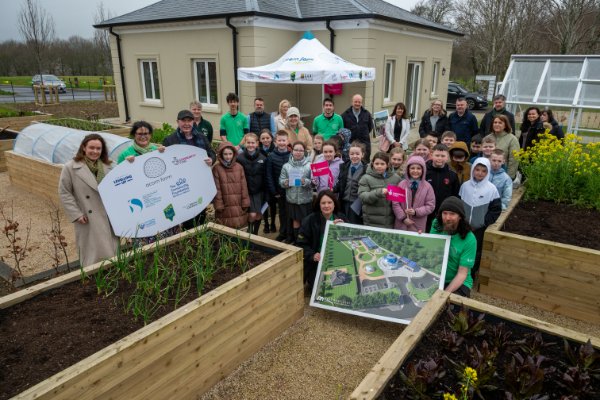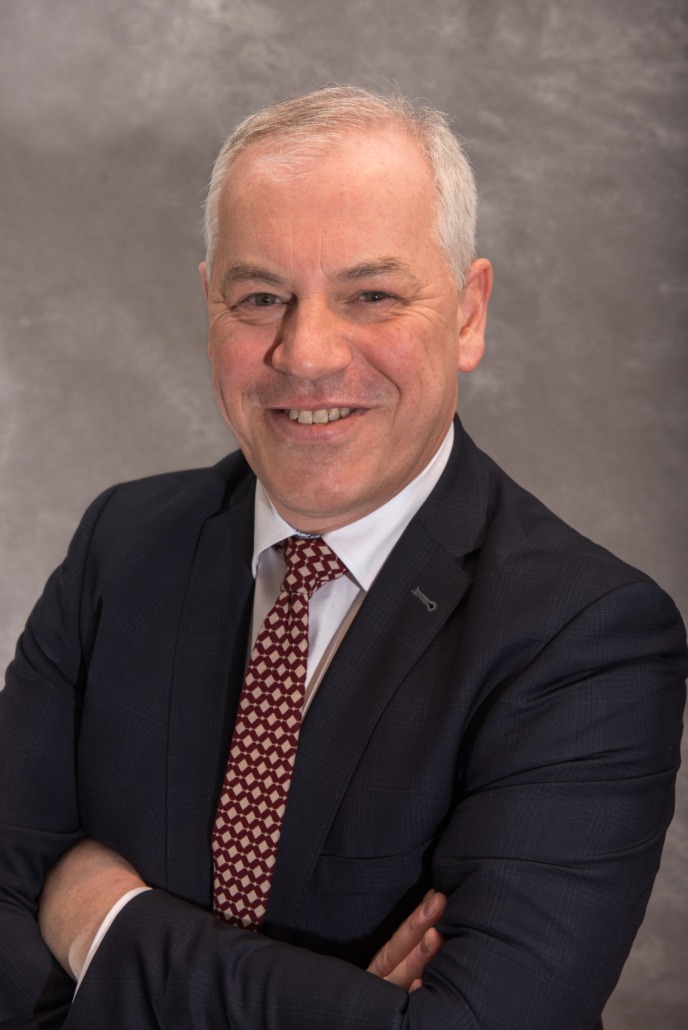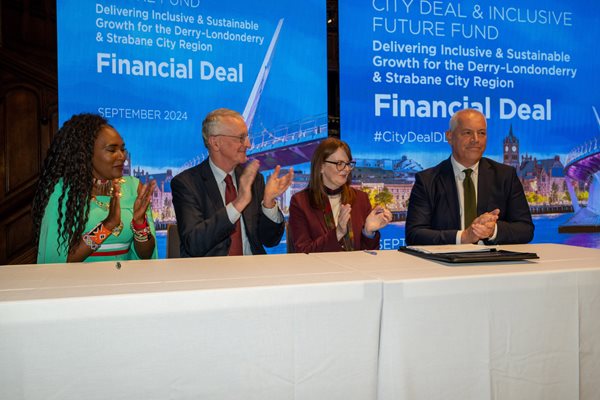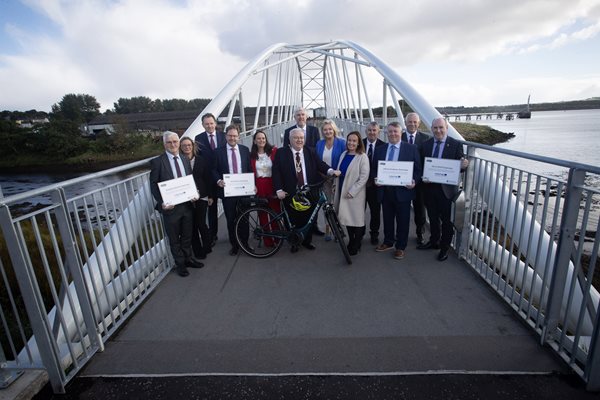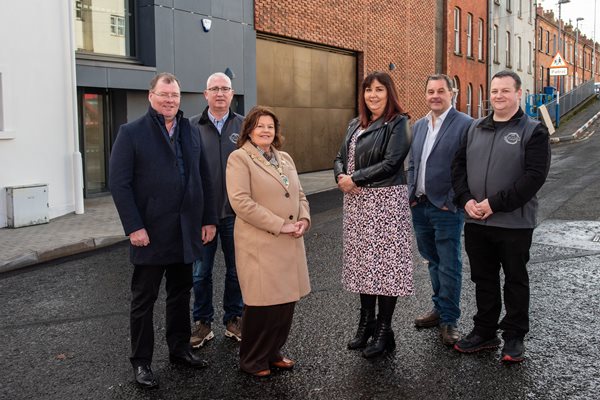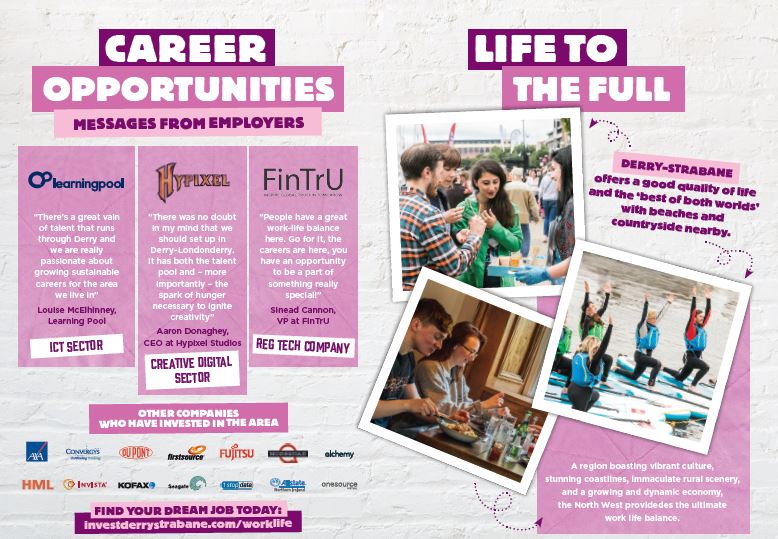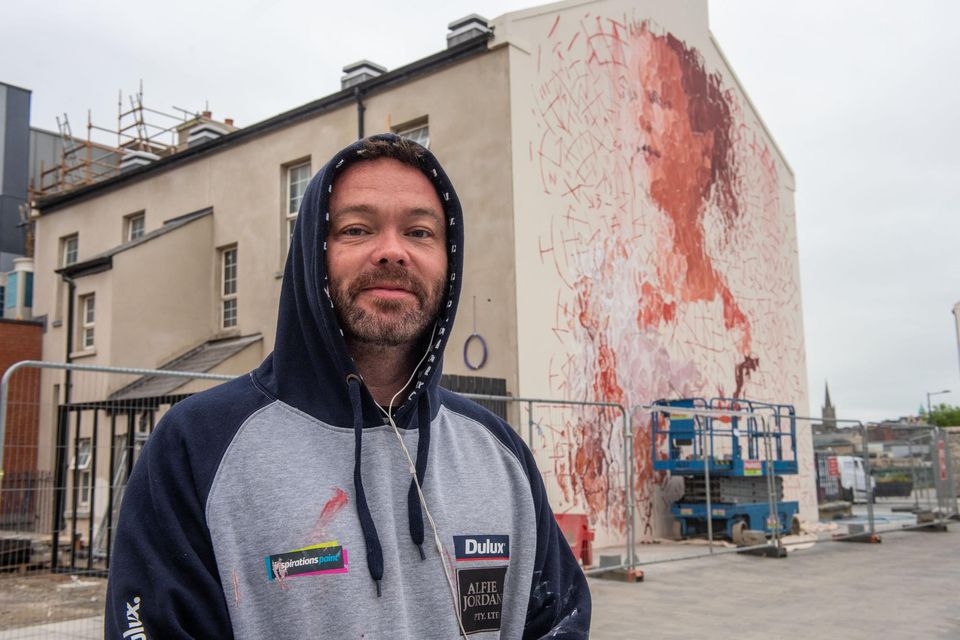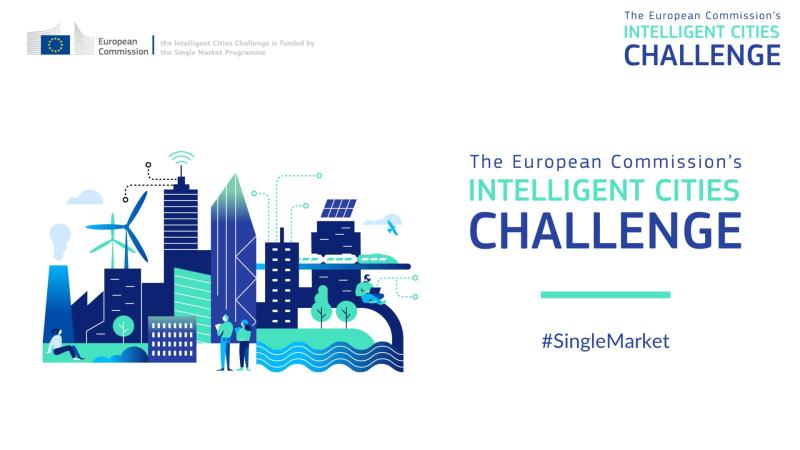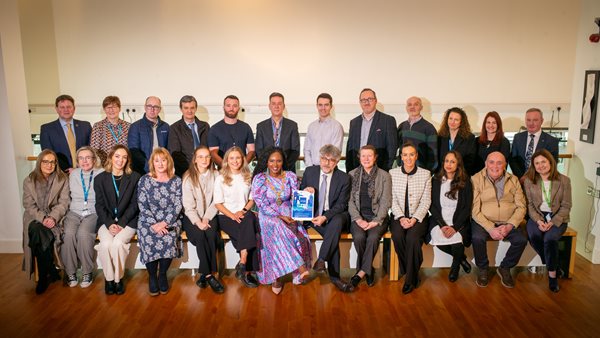
January marked a milestone for the North West region as the Strabane Positive Energy District (PED) Local Green Deal (LGD) was officially signed. This pioneering commitment paves the way for a £2 million injection of funding facilitated through the Derry~Londonderry and Strabane Region City Deal.
Officiating at the official signing was the Mayor of Derry City and Strabane District Council, Cllr Lilian Seenoi Barr along with representatives from the EU Intelligent Cities Challenge and a number of stakeholders who have been involved in supporting the development of the PED LGD including Ulster University’s Centre for Sustainable Technologies, who have produced a Concept Report for the Development of the PED, ERNACT, NWRC,WHSCT, Strabane BID, Strabane Growth Partnership, NIHE, EA, NIE, Evolve, BT and Translink.
Derry City and Strabane District Council and Donegal County Council have been collaborating together as the NW City Region, and are one of 64 locations across Europe who have successfully bid to participate in the EU Intelligent Cities Challenge. As part of this initiative the NW City Region has leveraged the support of leading local and EU experts to support the development of their LGDs.
A LGD is a local tailor-made action plan to accelerate and scale up a locations green and digital transition. It builds on and joins existing strategies – e.g. sustainable energy and climate action plans, circular economy plans, resilience or economic development plans – legislation, market, and financial incentives into a coherent approach to help improve economic competitiveness, social resilience and quality of life.
Strabane’s Local Green Deal seeks to create a living laboratory in Strabane Town centre with a key focus on energy generation, distribution, storage, forecasting and balancing across different energy sources including local businesses, residential, public and community sector properties.
The signing of the PED LGD today is a significant commitment by Council and its partners to work together to maximise opportunities to embrace energy efficiency measures, reduce greenhouse gas emissions and actively manage renewable energy production.
Mayor of Derry City and Strabane District Council, Cllr Lilian Seenoi Barr said: “This is a very exciting and innovative initiative for Council and its partners. As we signed the Derry Londonderry and Strabane City Region City Deal which includes plans to transform and redevelop the canal basin area of Strabane, we realised that this was the perfect opportunity for us to bring forward this initiative. The creation of a PED in Strabane fits perfectly with our goals and objectives for City Deal in terms of sustainability and we are delighted that as part of our development plans for Strabane we can now include energy efficiency measures across the proposed three public service buildings, retrofits of nearby town centre buildings and the deployment of renewable energy generation and storage infrastructure.
I look forward to seeing this showcase project implemented and the benefits being rolled out across Strabane including reduced carbon emissions, decrease in town centre air pollution, security of local energy supply, reduced energy bill costs, and economic growth through cutting edge innovation”.
Saverio Romeo, Lead EU expert said: “The collaboration among local business and academic stakeholders, Derry and Strabane City Council, and the EU Intelligent Cities Challenge team in the North West City Region has set the stone for an ambitious project that will make Strabane a best practice for energy efficiency and sustainable living in the region and beyond. It is a milestone for Strabane, a milestone only possible because experts, professionals, academics, business owners, policy makers have worked together for the public good.”

